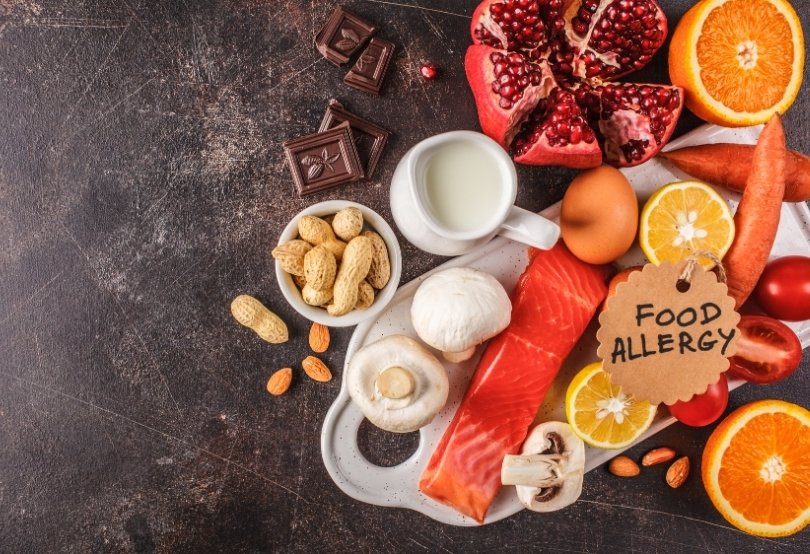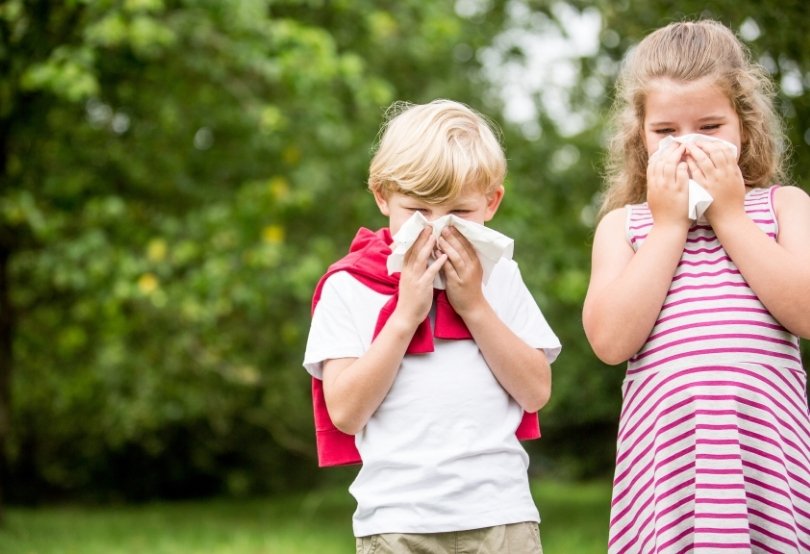
What is Food Allergy?
A food allergy occurs when the immune system mistakenly identifies certain proteins in food as harmful. In response, the immune system releases chemicals like histamine to protect the body, leading to allergic reactions. Food allergies can range from mild to severe, and in extreme cases, they can lead to a potentially life-threatening condition known as anaphylaxis.
Food allergies are most common in children, though they can develop at any age. Some individuals outgrow their food allergies, while others may have them for life.
What are the Symptoms of Food Allergy?
Symptoms of food allergies vary in severity and can affect different parts of the body. Common symptoms include hives, itching, swelling of the lips, face, or throat, difficulty breathing, abdominal pain, vomiting, diarrhea, and dizziness. These symptoms typically occur within minutes to a few hours after consuming the allergenic food.
Here are some common foods that often trigger allergic reactions:
1- Milk
Milk allergies are common, particularly in infants and young children. Symptoms can include hives, vomiting, and even anaphylaxis in severe cases.
2- Peanuts
Peanut allergies are among the most severe food allergies, often leading to strong reactions such as anaphylaxis. Symptoms can occur even after exposure to trace amounts.
3- Wheat
Wheat allergies primarily affect children, though some adults are also affected. Symptoms can include hives, swelling, and gastrointestinal distress. Wheat allergy should not be confused with gluten intolerance or celiac disease.
4- Eggs
Egg allergies are common in children and can lead to symptoms such as skin reactions, respiratory issues, and stomach upset. Many children outgrow this allergy as they age.
5- Nuts and Legumes
Allergies to tree nuts (such as almonds, walnuts, and cashews) and legumes (such as soybeans) are common and can cause reactions ranging from mild to life-threatening.
6- Fish and Seafood
Fish and shellfish allergies are more common in adults than in children. Reactions can vary widely, from mild skin symptoms to severe respiratory issues and anaphylaxis.
7- Chocolate
Chocolate allergies are rare, but some individuals may experience reactions due to the other ingredients present in chocolate, such as milk, nuts, or soy.
How is Food Allergy Diagnosed?
Food allergies are diagnosed through a combination of medical history, physical examination, and specific tests. The most common diagnostic tests include:
Skin Prick Test
During a skin prick test, small amounts of suspected allergens are introduced to the skin via tiny pricks. If a raised bump appears at the site, it indicates an allergic reaction.
Blood Test
A blood test measures the presence of specific IgE antibodies that react to certain foods. Elevated levels of these antibodies suggest an allergic reaction.
Oral Food Challenge
In a supervised setting, the patient is gradually exposed to small amounts of the suspected allergen to observe for any reactions. This test is often considered the most accurate for diagnosing food allergies.
What are the Treatment Methods for Food Allergy?
The most effective treatment for food allergies is to avoid the allergenic food entirely. However, this can be challenging, especially with widespread ingredients like nuts, dairy, and wheat. In cases where accidental exposure occurs, treatment options include:
Antihistamines
Antihistamines can help relieve mild symptoms such as itching, hives, and swelling. These medications are available over-the-counter or by prescription.
Epinephrine
For severe allergic reactions, epinephrine (adrenaline) is the primary treatment. It helps to quickly reduce the symptoms of anaphylaxis by opening the airways and maintaining blood pressure. Individuals with known food allergies are often prescribed an epinephrine auto-injector (such as an EpiPen) for emergency use.
First Aid for Food Allergy
In the event of a food allergy reaction, quick action is essential, particularly if the person is experiencing symptoms of anaphylaxis. Follow these steps:
- **Administer Epinephrine:** If the person has an epinephrine auto-injector, use it immediately. Make sure to follow the instructions and inject it into the outer thigh.
- **Call Emergency Services:** Seek medical help immediately, even if the symptoms seem to improve after administering epinephrine. Anaphylaxis can sometimes recur after initial treatment.
- **Keep the Person Calm:** Try to keep the person calm and monitor their breathing and consciousness until medical help arrives.
Why Choose Us?
Our clinic specializes in allergies and allergy testing, and we stand out in the field of health tourism with the high standards of service we provide. Here are the key reasons why you should choose us:
Expert Doctor Team
At our clinic, we have highly experienced doctors at the professor level who are experts in the field of allergies. With years of experience in allergy treatment and testing, we provide the most accurate diagnosis and treatment processes. Our professor is skilled in managing even the most complex allergy cases and delivering the most effective solutions.
Cutting-Edge Allergy Tests
Your health is our top priority. In our clinic, we use state-of-the-art allergy testing technologies that are recognized globally. This allows us to obtain the most accurate and rapid results, ensuring that your treatment plans are created in the best possible way. Our tests are conducted according to international standards.
Comfort and Luxury Services
We don’t just focus on treatment; we also aim to provide a comfortable experience. During your treatment, we offer five-star hotel accommodations to ensure you feel at home throughout the process. Your comfort is guaranteed with the luxurious services we provide.
Transfer and Transportation Convenience
For patients coming from abroad or from other cities, we offer VIP transfer services. From the airport to our clinic, and from our clinic to your hotel, we are with you every step of the way. We take care of every detail to ensure your comfort and safety.
Personalized Approach
Every patient’s health condition is unique, and we tailor our solutions to meet each individual’s specific needs. Throughout your treatment process, we stay closely connected with you, and our professional team is by your side every step of the way.






